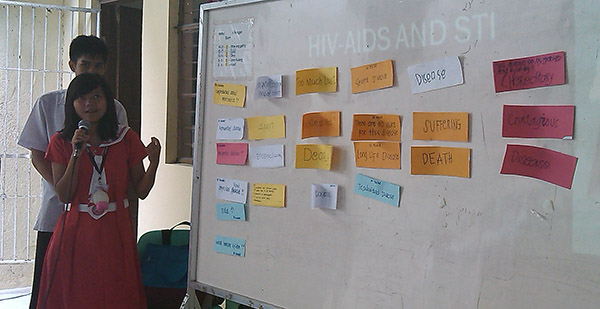
|
IN THIS PHOTO:
|
|
.
. |
| View Gallery |
|
IN THIS PHOTO:
|
|
.
. |
| View Gallery |
|
IN THIS PHOTO:
|
|
.
. |
| View Gallery |
|
IN THIS PHOTO:
|
|
.
. |
| View Gallery |
|
IN THIS PHOTO:
|
|
.
. |
| View Gallery |
|
IN THIS PHOTO:
|
|
.
. |
| View Gallery |
|
IN THIS PHOTO:
|
|
.
. |
| View Gallery |
|
IN THIS PHOTO:
|
|
.
. |
| View Gallery |


By way of encouraging more people to have themselves tested for human immunodeficiency virus, the City Health Office assures clients of HIV test that results are kept confidential.
Dr. Josephine Diaz, medical coordinator for HIV and acquired immunodeficiency syndrome (AIDS) and other sexually transmitted infection (STIs), said the names of clients of HIV test done at the local social hygiene clinic and the results are known only to her, the clinic’s medical technologist, a nurse coordinator, and a social worker.
Diaz counsels takers, assuring them the clinic strictly enforces confidentiality and that the city government has lined up services for persons living with HIV, among them free medical examinations, medicines, and a support group.
Diaz also briefs takers on the Philippine AIDS Prevention and Control Act of 1998, or the Republic Act 8584, which orders health professionals to practice confidentiality and punishes those who breach it with imprisonment for six months to four years.
On the other hand, the medical technologist runs tests on the client’s blood sample in the laboratory to determine whether the client is infected with HIV or not.
The nurse coordinator and social worker keep records of Persons Living With HIV (PLHIVs) and arranges for their admission to “treatment hubs,” or institutions where they receive treatment.
The social worker also secures HIV patients with PhilHealth membership, which entitles them to a coverage of their medical expenses.
Social worker Violeta Hidalgo said patients are identified in documents with code numbers.
Fear of ostracism
The HIV test should be taken especially by sexually active people, to include sex workers; and those who engage in intimate contacts but do not use condoms.
Diaz said fear of being ostracized in the community and workplace keeps many from taking the test.
“It is the way HIV is transmitted that many people are still confused about,” said Diaz. “They think HIV can spread through saliva or skin-to-skin contact, so they avoid getting near a person living with HIV.”
The HIV is transmitted through the blood, semen, vaginal fluid, as well as breastmilk. When a person contracts it, the number of CD4 cells in the body dives, making the person prone to various types of infection. CD4 cells are cells that normally act as the body’s line of defense.
Though search for the cure for HIV has been unsuccessful so far, patients can avail themselves of medicines that maintain the number of CD4 cells enough to keep infections at bay and delay the progress of HIV to AIDS.
To correct wrong information and stem discrimination against PLHIVs, the city’s Health Education and Promotion Office has been teaching the public on HIV-AIDS, holding lectures among various sectors, including college students and inmates at the city jail.
From January 1984 to January 2015, a total of 23,063 HIV cases have been recorded in the Philippines, the National Epidemiology Center reports. Of this, 259 are residents of Valenzuela City.
The World Health Organization (WHO) says that by the end of 2013, more than 35 million people around the world carry HIV.
Valenzuela City residents who want to take an HIV test may go to the social hygiene clinic at the Multipurpose Hall in the Government Center. They may also contact the City Health Office at this number: 352-1000 local 1111.
 Latest News
Latest News Archive
Archive Category
Category

